
-
 Lives on hold in India's border villages with Pakistan
Lives on hold in India's border villages with Pakistan
-
Musk's dreams for Starbase city in Texas hang on vote
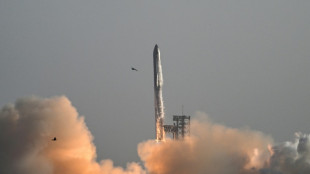
-
 Rockets down Warriors to stay alive in NBA playoffs
Rockets down Warriors to stay alive in NBA playoffs
-
Garcia beaten by Romero in return from doping ban
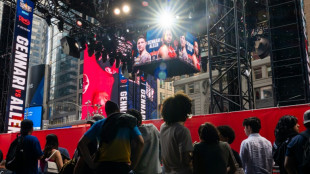
-
 Inflation, hotel prices curtail Japanese 'Golden Week' travels
Inflation, hotel prices curtail Japanese 'Golden Week' travels
-
Trump's next 100 days: Now comes the hard part
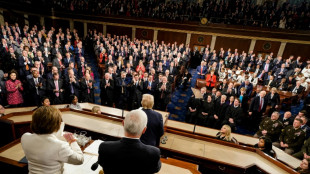
-
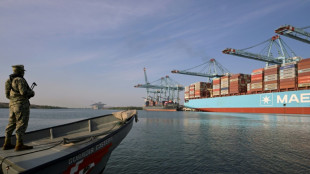 Mexican mega-port confronts Trump's tariff storm
Mexican mega-port confronts Trump's tariff storm
-
Trump's tariffs bite at quiet US ports
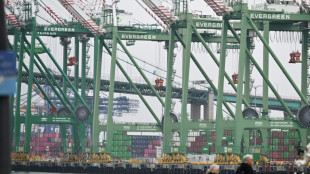
-
 Ryu stretches lead at LPGA Black Desert Championship
Ryu stretches lead at LPGA Black Desert Championship
-
Singapore votes with new PM seeking strong mandate amid tariff turmoil

-
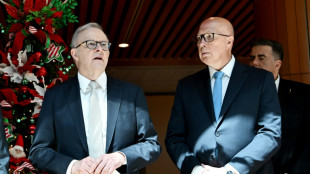 Five things to know about the Australian election
Five things to know about the Australian election
-
Scheffler fires 63 despite long delay to lead CJ Cup Byron Nelson
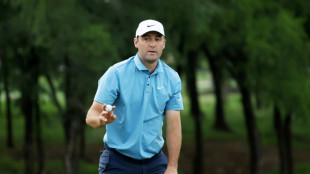
-
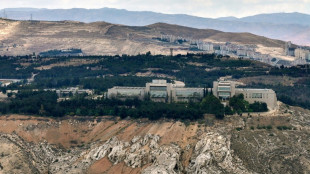 Israel launches new Syria strikes amid Druze tensions
Israel launches new Syria strikes amid Druze tensions
-
Finke grabs 400m medley victory over world record-holder Marchand

-
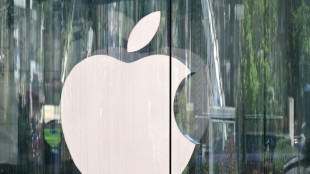 Apple eases App Store rules under court pressure
Apple eases App Store rules under court pressure
-
Polls open in Australian vote swayed by inflation, Trump
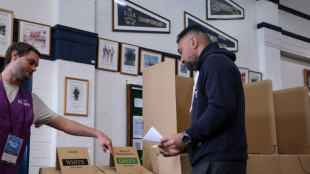
-
 Russell clocks second fastest 100m hurdles in history at Miami meeting
Russell clocks second fastest 100m hurdles in history at Miami meeting
-
Germany move against far-right AfD sets off US quarrel
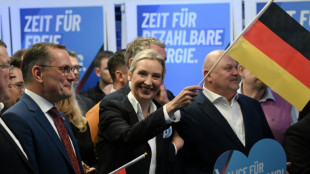
-
 Billionaire-owned Paris FC win promotion and prepare to take on PSG
Billionaire-owned Paris FC win promotion and prepare to take on PSG
-
Teenager Antonelli grabs pole for Miami sprint race

-
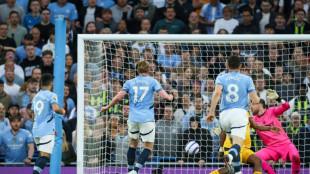 Man City climb to third as De Bruyne sinks Wolves
Man City climb to third as De Bruyne sinks Wolves
-
Mercedes' Wolff backs Hamilton to come good with Ferrari
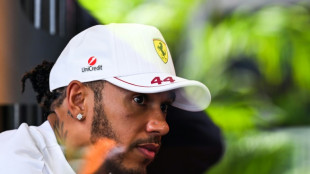
-
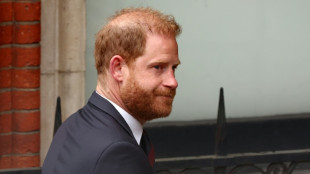 'Devastated' Prince Harry says no UK return but seeks reconciliation
'Devastated' Prince Harry says no UK return but seeks reconciliation
-
Elway agent death likely accidental: report
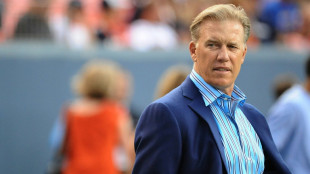
-
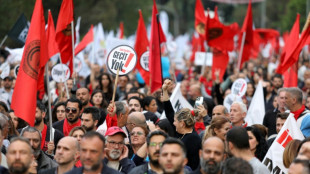 Turkish Cypriots protest new rule allowing hijab in school
Turkish Cypriots protest new rule allowing hijab in school
-
Germany's AfD dealt blow with right-wing extremist label
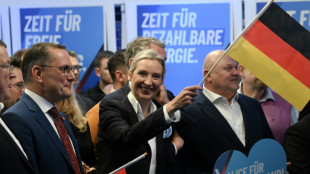
-
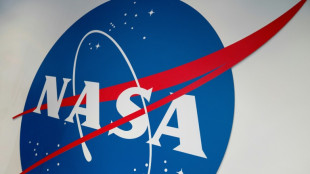 Trump NASA budget prioritizes Moon, Mars missions over research
Trump NASA budget prioritizes Moon, Mars missions over research
-
Hard-right romps through UK polls slapping aside main parties
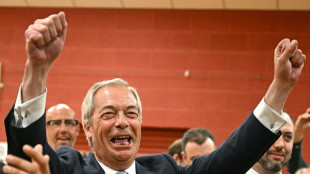
-
 Rangers hire two-time NHL champion Sullivan as coach
Rangers hire two-time NHL champion Sullivan as coach
-
Haaland on bench for Man City as striker returns ahead of schedule

-
 US designates two Haitian gangs as terror groups
US designates two Haitian gangs as terror groups
-
Lower profits at US oil giants amid fall in crude prices
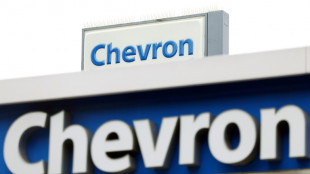
-
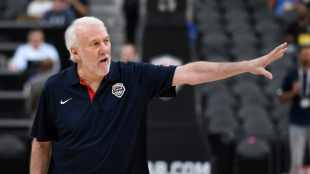 NBA icon Popovich stepping down as Spurs coach after 29 seasons
NBA icon Popovich stepping down as Spurs coach after 29 seasons
-
'Devastated' Prince Harry says no return to UK but seeks royal reconciliation
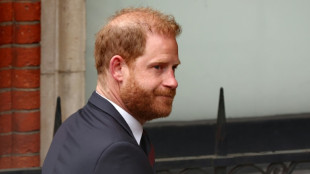
-
 Grande scratched from Kentucky Derby
Grande scratched from Kentucky Derby
-
Carney vows to transform Canada economy to withstand Trump
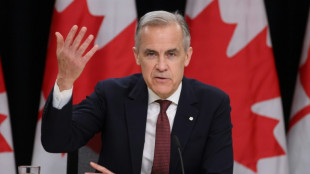
-
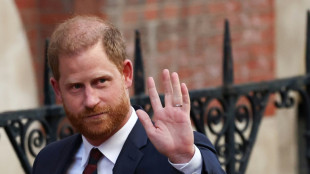 Prince Harry says he would 'love' to reconcile with family
Prince Harry says he would 'love' to reconcile with family
-
Major offshore quake causes tsunami scare in Chile, Argentina
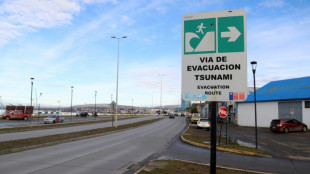
-
 GM cuts shift at Canada plant over 'evolving trade environment'
GM cuts shift at Canada plant over 'evolving trade environment'
-
F1 extends deal to keep Miami GP until 2041

-
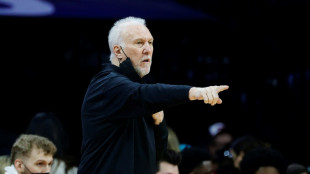 Popovich mixed toughness and spirit to make NBA history
Popovich mixed toughness and spirit to make NBA history
-
US asks judge to break up Google's ad tech business
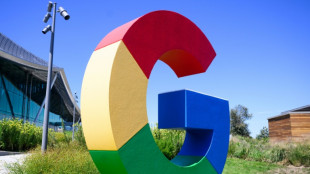
-
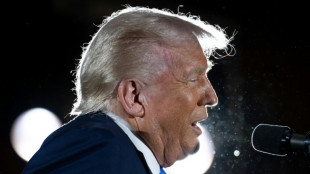 Trump eyes huge 'woke' cuts in budget blueprint
Trump eyes huge 'woke' cuts in budget blueprint
-
Ruud downs Cerundolo to book spot in Madrid Open final
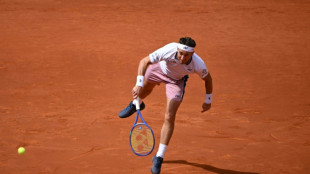
-
 Gregg Popovich stepping down as San Antonio Spurs coach after 29 seasons: team
Gregg Popovich stepping down as San Antonio Spurs coach after 29 seasons: team
-
Guardiola to take break from football when he leaves Man City
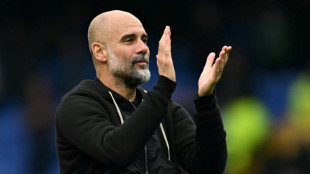
-
 Vine escapes to Tour of Romandie 3rd stage win as Baudin keeps lead
Vine escapes to Tour of Romandie 3rd stage win as Baudin keeps lead
-
Olympic 100m medalist Kerley arrested, out of Miami Grand Slam meet
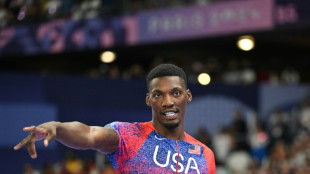
-
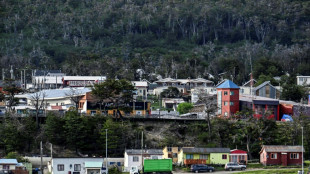 Chile, Argentina order evacuations over post-quake tsunami threat
Chile, Argentina order evacuations over post-quake tsunami threat
-
Arteta 'pain' as Arsenal fall short in Premier League title race
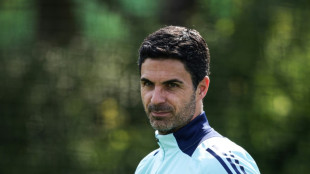

How the EU is responding to Trump's trade assault
Hit by three waves of painful US tariffs since President Donald Trump returned to office, the European Union's response has been a high-wire act, balancing calibrated retaliation with a push for negotiations to avert an all-out trade war.
- In March, Trump fired his first shot against the 27-country European Union with 25 percent levies on steel and aluminium imports;
- He then slapped 25-percent tariffs on all foreign-made cars, in effect since last week;
- And in his biggest move, Trump ordered 20 percent tariffs on all other EU goods among a raft of levies on dozens of countries including China, which came into force Wednesday.
- What steps is the EU taking? -
The EU's approach so far has been think first, then act.
After the metals tariffs hit in March, it gave itself a month to fine-tune a list of US goods to target -- ranging from soybeans to makeup and motorcycles, and weighted towards states held by Trump's Republicans.
EU capitals are to green light this list during a meeting Wednesday. Once approved, the majority of the tariffs will kick in in May, and some in December.
Meanwhile, the EU will let levies dating from Trump's first term -- but currently suspended -- snap back into place in mid-April.
Next will come the bloc's response to the sweeping 20-percent import taxes and tariffs on cars, which could be made public as early as next week.
There has been no public indication of how the EU will respond, but France has led the push with Germany and Austria to target US tech titans if negotiations come to nought.
France and Germany have gone further, pushing the EU to be prepared to deploy its so-called trade "bazooka" -- the anti-coercion instrument.
The new and yet unused tool is designed to punish any country using economic threats to exert pressure on the EU, once diplomacy fails, and gives the bloc greater powers including limiting trade on services.
- What about negotiations? -
What Europe wants above all is to reach a negotiated solution.
"Sooner or later, we'll be sitting at the negotiating table," the EU's trade chief Maros Sefcovic said Monday, while admitting that "engaging the US will take both time and effort."
A quiet unassuming figure, Sefcovic has led the EU's outreach in search of a "mutually acceptable compromise".
He has gone to Washington twice -- in February and March -- and held calls with his US counterparts, Commerce Secretary Howard Lutnick and Trade Representative Jamieson Greer.
EU chief Ursula von der Leyen this week offered a glimpse into what Europe has put on the table so far, revealing it offered Washington a bilateral tariff exemption for cars and other industrial goods. The response was not positive.
Officials privately admit that there has been little progress in the EU's talks with the United States, pointing to an unclear picture of what Trump really wants.
One issue could be whether the bloc is talking to the right people.
Trump's trade advisor, Peter Navarro, appears to be far more influential on the issue than Lutnick or Greer, but EU officials say he has not been a part of the discussions.
- What else might Trump want? -
Navarro, believed to be the architect of Trump's trade offensive, has made it clear he is deeply unhappy with the EU, lambasting a series of "non-tariff" barriers Washington deems unfair.
US officials have set their sights on value-added tax (VAT) but also the EU's food safety and health rules, and its environmental standards.
"Anybody who wants to come to talk to us, talk to us about lowering your non-tariff barriers," Navarro said in a Monday interview.
He has also taken umbrage with the EU's landmark tech laws, the Digital Markets Act and the Digital Services Act, claiming they unfairly target American companies.
The EU has pushed back hard on the VAT and tech claims.
"(We) don't share the US assessment of what constitutes a non-tariff barrier," EU spokesman Olof Gill said Tuesday.
He added European tech rules were "separate" from the tariff discussions. "We will not be conflating the two in our negotiations with the US."
The threat of more duties is far from over. Trump also has the pharma sector in his crosshairs -- a critical industry for the EU, especially Ireland.
A.Kunz--VB
